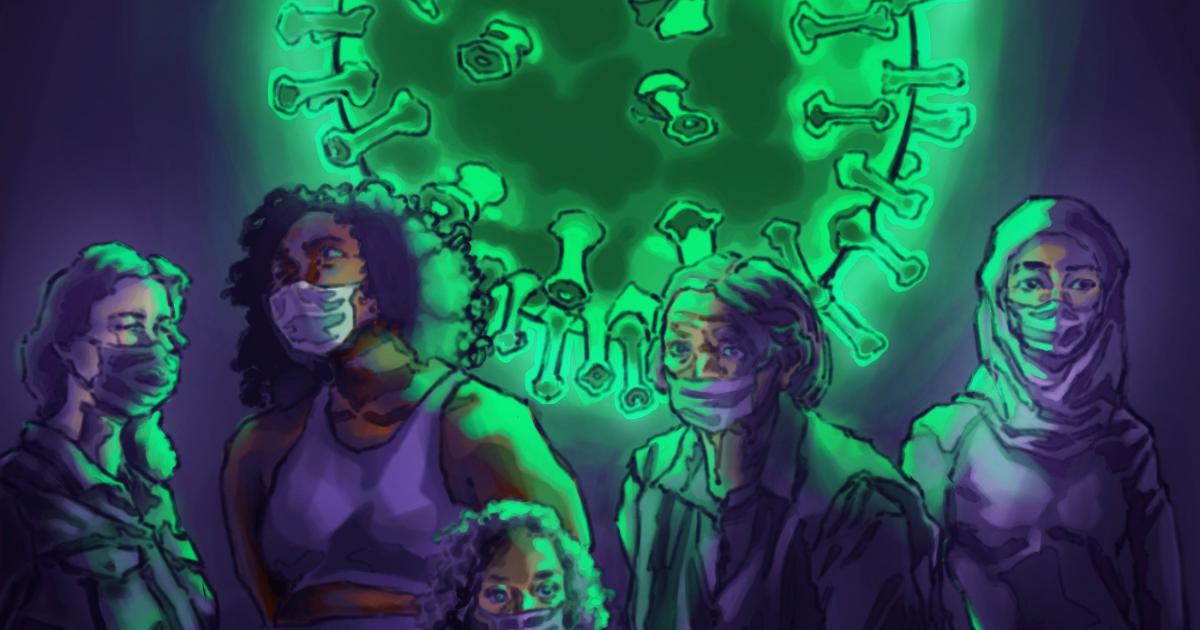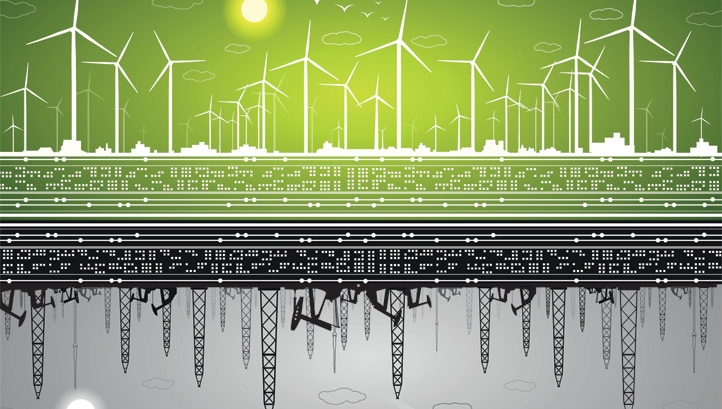
This is the sixth installment in a series about extending the Green New Deal to confront multiple global crises. Read Part I, Part II, Part III and Part IV and Part V.
Corporations destroying the planet are receiving billions in bailouts and other government support in response to COVID-19's economic fallout. For instance, $159 billion was given worldwide to the biggest oil companies in the first seven months of this year.
This money could go to renewable energy projects instead. Rather than using the pandemic as an excuse to roll back environmental protections – for instance, through Donald Trump's attack on Environmental Protection Agency legislation – measures could be made more stringent, favoring the growing renewable industry and hastening big oil's decline.
The European Central Bank and Bank of England could replace their quantitative easing programs, which vastly favor high carbon industries (and the extremely wealthy), with alternative green bonds. There is no reason, other than an ideological one, why the US government is underwriting the military industrial complex rather than transforming it toward something socially and ecologically useful.
This leads to a deeper question: Why are governments taking actions that threaten people and planet? The short answer is: Corporations and their power within the capitalist system, where profits are all-powerful.
“Long after the Covid-19 crisis has passed, future generations will look at this period as a 'moment' that everything might have changed direction; a moment that woke us up to the fact that we could not live side-by-side with corporations,” Professor David Whyte writes in his book Ecocide: Kill the Corporation Before It Kills Us.
Published in September 2020, Ecocide explains that since the era of the first-ever corporation – the Swedish mining company Stora Kopparberg, founded in the late 13th century – companies have become vehicles for the destruction of people and planet. Now we have a crucial moment to stop corporations from making the world inhabitable.
The last decade has seen an ever greater awareness that capitalism is driving climate change. With a world facing multifold crises, the number of people questioning capitalism is peaking. What Whyte does expertly in his book is situate how corporations, especially big corporations, are not passive bystanders to all of this. In fact, they are the driving engine of ecological meltdown and human devastation.
For instance, between the first climate summit in 1988 and the Paris Agreement in 2015, 100 corporations were the source of 71 percent of climate emissions.
Corporations, Whyte argues, are so destructive because they enable capital freedom at the expense of everyone and everything else. Working back through eight centuries of colonialism to today's system two decades into the twenty-first century, the book highlights the toxic legacy of corporations – from DOW's (Union Carbide) devastation in Bhopal to Chevron Texaco wiping out entire indigenous nations in the Ecuadorian Amazon; and from High Street stores hiding sweatshop labor through complex supply chains, to Texaco backing Spain's dictator Franco.
But this is not just a story about bad apples. Whyte threads the book together with each chapter looking at corporate crimes and showing how the corporations themselves have been constructed – legally, politically, socially. Ecocide is hardwired into the way corporations' very structure has been permitted to exist.
“Corporations have an in-built propensity to destroy the natural environment,” Whyte writes. He lays out five key reasons about how limitless and ruthless the ambitions of corporations have become. For one, company shareholders do not need to know exactly what they are investing in in order to make money. Translation: CEOs are seldom held liable for their corporations' actions.
Second, corporations are set up solely to make profit – as much of it as possible – while externalizing the costs, which means avoiding paying for, whatever they can get away with. Third, corporations are seen as largely immoral in whatever they do: for instance, Volkswagen was complicit in the horrors of the Nazi Third Reich, using slave labor from death camps, yet the company continued to prosper just as many others corporations that involved themselves in genocide, slavery and other crimes.
Fourth, governments effectively give corporations a license to kill. One illustration of this point is the number of chemicals that we know are toxic and last in the environment, such as leaded petrol, PCB and organophosphates, which are made under license even in places where they are banned.
Lastly, corporations have risen to a quasi-legal status, meaning they can bend human rights to abuse others. This is evident in the way firms can sue governments when they try to regulate them. Despite all the rights accumulated to them, corporations have few responsibilities.
Whyte, a professor of socio-legal studies at the University of Liverpool, concludes the book by explaining that society must break the corporation's power structure. Referring to the writer Arundhati Roy, Whyte asserts that corporations' scope needs to be narrowed so they are less all-powerful: weapons manufacturers should not own TV channels, mining companies should not own newspapers, and we must end shareholder and CEO immunity from crimes.
On a wider level, this book starts, or perhaps broadens, a conversation by saying that corporations are the central force driving the multi-fold crises we face. Whyte points out how even the Green New Deal, and the movements for environmental and social justice, often do not challenge corporations. We cannot end business as usual without disempowering big business at its core.
The moment is now
Worldwide, few countries are tackling COVID-19. This means countries are falling into their second, third or fourth waves of the virus. Corporations will again be demanding government support, which means we have another moment to take a transitional step toward a Green New Deal. Society cannot allow COVID-19 bailouts to fund our planetary demise.
Not bailing out the big oil companies, aviation and other high polluting corporations does not mean we will be rid of them overnight. Neither does it herald a new system based on a Green New Deal that is ecologically sound and socially fair. But it is a first step.
As this series has shown, there are many ways of paying for a Green New Deal. For starters, we need to get past the idea that states work like household budgets, which was the "logic" that underpinned a decade of austerity in Europe and North America. States can create money anew, for instance, by governments selling bonds and central banks enacting quantitative easing.
But to get to a point where we create an overwhelming momentum behind a Green New Deal, not only do we have to win this argument – we need to undercut another "logic" of the financial crash. Big corporations, just like big banks, are not public goods. They are not "too big to fail," and when they commit crimes they are not "too big to jail." We need to get out there, before the next round of COVID-19 bailouts, and make the argument that we must stop supporting the big corporations before the world fails.
Read Part I, Part II, Part III and Part IV and Part V













